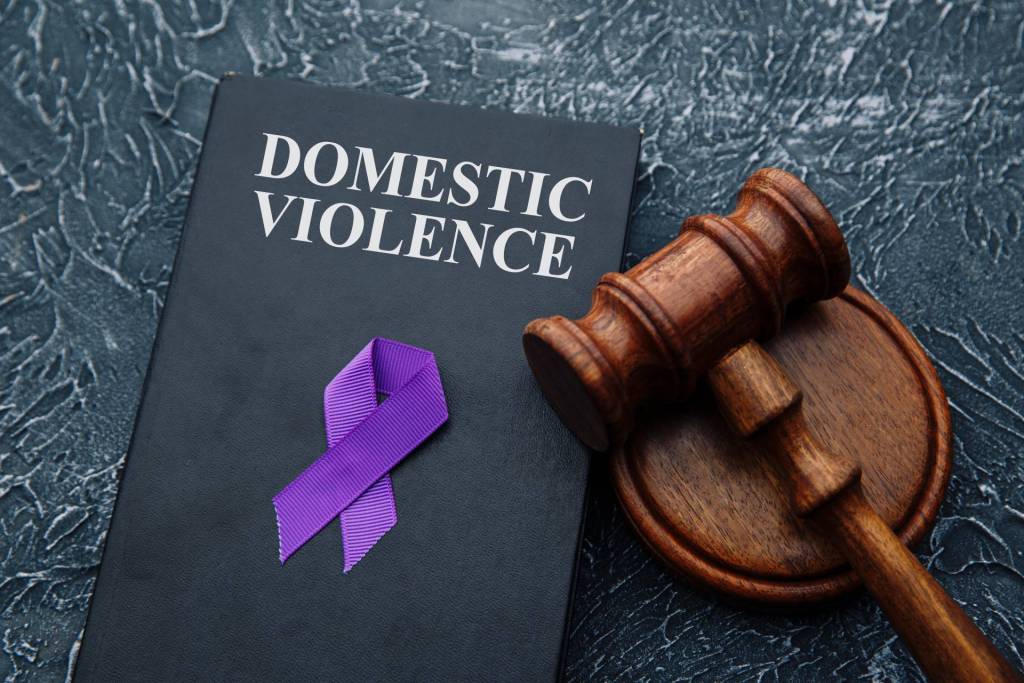Are There Cases Where Sexual Abuse Isn’t a Crime?
If someone has accused you of committing a sexually-based domestic violence crime, you must be advised and represented by a Jefferson County domestic violence attorney, and you must contact that attorney’s offices as quickly as possible.
Domestic violence happens far too frequently in this state, and Missouri’s courts take even the threat of domestic violence seriously. However, these cases are sometimes complicated because a defendant claims the victim consented to sexual behavior that may be considered abusive.
Domestic violence includes sexual abuse, which is defined as coercing or attempting to coerce another person into sexual contact or sexual behavior against that person’s will. How are claims of consent handled by the courts in domestic violence cases that involve sexual abuse?
What are your rights if you are charged with a domestic violence crime? When should you contact a Jefferson County domestic violence lawyer? For the answers you may need, keep reading this short discussion of sexual abuse, domestic violence, your rights, and Missouri law.
How is Sexual Abuse Defined?
According to the U.S. Department of Justice, sexual abuse is coercing or attempting to coerce sexual behavior without the other person’s consent. It includes marital rape, physically violent sexual activity, or treating someone in a sexually humiliating manner.
Under the laws in all fifty states, consent is the line between legal and illegal sexual behavior. Did both people agree to and engage voluntarily in behavior that would otherwise be considered abusive and criminal?

That question must be answered in a domestic violence case when a defendant claims that the alleged victim consented to activity that may be considered abusive. If a defendant can prove an alleged victim consented, the defendant can’t be convicted of sexually-based domestic violence.
What is “Consent” in Domestic Violence Cases?
The precise legal definition of consent varies from state to state, but generally speaking, consent is an ongoing discussion of sexual boundaries and what partners are comfortable with. Specifically, consent is an agreement between sexual partners regarding their sexual activity.
Consent must be communicated clearly and voluntarily. An affirmative, verbal expression of someone’s consent helps that person as well as the other person respect and understand one another’s boundaries.
Who May Not Consent to Sexual Activity?
Legally speaking, a person cannot consent to sexual activity if that person is:
- a minor
- incapacitated or intoxicated by alcohol and/or drugs
- unconscious or asleep
Because consent must be entirely free and voluntary, someone cannot legally consent to sexual activity if that person has been intimidated or threatened. If one individual has authority over another, such as a teacher over a student or an employer over an employee, consent cannot be given freely by the person under the authority.
May Consent Be Withdrawn?
Someone’s consent to sexual activity may be withdrawn at any time. The best way to withdraw consent is to communicate clearly to the other person that you are now uncomfortable with the activity and want the activity to stop.
The way to make sure that both parties are comfortable with a sexual activity is to talk about it, check periodically with your partner, and ensure that consent is freely given before any escalation or change of sexual activities.
Have You Been Falsely Accused?
Domestic violence and sexual abuse crimes happen far too often in Missouri, but so do fabricated allegations of domestic violence and sexual abuse. If you are the target of a phony domestic violence or sexual abuse claim, contact a Jefferson County domestic violence attorney at once.

False sexual abuse claims can be made for a number of reasons – or for no apparent reason at all. While a good domestic violence defense lawyer will work diligently to uncover the truth, if your sex abuse/domestic violence case goes to trial, what is “true” will be determined by a jury.
Charged With Domestic Violence? How Will an Attorney Help?
If you are charged with any crime of domestic violence in this state, a Missouri domestic violence lawyer will review the evidence in your case, speak with any witnesses, protect your rights, and fight aggressively for justice on your behalf.
Your defense attorney may ask the prosecutor to drop the charge, or your attorney may petition the court with a motion to dismiss the charge. If the charge against you cannot be dropped or dismissed, you have two remaining options:
- If the evidence of your guilt is substantial, your attorney may negotiate with the prosecution for an acceptable plea bargain. In most plea bargains, you agree to plead guilty to a lesser charge and to serve a reduced sentence.
- If you are not guilty of a domestic violence crime, insist on your right to a jury trial, where your attorney will explain to a jury exactly what happened (and what didn’t happen) and why you should be found not guilty.
What Else Should You Know About Sexual Abuse and Domestic Violence?
In Missouri, four different sexual assault charges are available to prosecutors:
- First-degree sexual assault is a Class C felony. A conviction may be penalized with a lengthy prison sentence.
- Aggravated first-degree sexual assault is a Class B felony. A conviction may be penalized with an even lengthier prison sentence.
- Second-degree sexual assault is a Class A misdemeanor. A conviction may be penalized with jail time and a fine.
- Aggravated second-degree sexual assault is a Class E felony. A conviction may be penalized with a prison sentence.
Sexual abuse and domestic violence can never be tolerated or excused, but sexual assault defendants are entitled to due process, and they have basic constitutional rights just like anyone accused of any other crime.
How Should You Choose a Sexual Assault Defense Lawyer?
The legal team at Grafe & Batchelor offers a strong, aggressive defense for clients who are charged with domestic violence crimes. With more than thirty years of combined experience in criminal law, we have successfully represented defendants in every part of Missouri.

A Jefferson County domestic violence lawyer at Grafe & Batchelor will take the time to learn the facts about your case, question the witnesses, and prepare an effective defense on your behalf while protecting your rights and working for the best possible outcome.
If you are accused of a domestic violence or sexual abuse crime in the greater St. Louis area or any other part of Missouri, promptly call the offices of Grafe & Batchelor at 636-933-9151 for a free case evaluation. We are ready to put the law to work for you.




